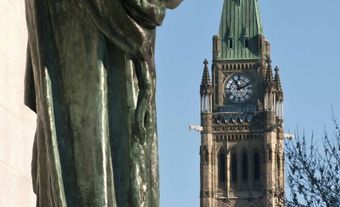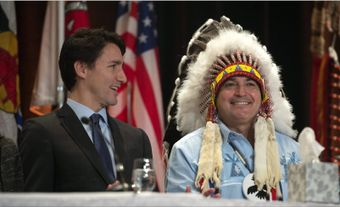Regional Government
Regional government is a structure created by the provinces, in particular Ontario, Québec and British Columbia, by which municipalities are grouped under a regional political and administrative structure. Regional governments are a geographically larger level of government over existing municipalities to provide certain area-wide municipal functions more economically and to establish a tax base sufficient to undertake necessary new services. In Alberta there are 29 large single-tier rural regional governments called counties which, since 1950, have been created through the consolidation of municipal districts with their respective school divisions.
The most comprehensive reform occurred in Ontario, which in 1969 began to replace COUNTY governments (in place since 1849) with a system of 11 larger regional municipalities. These were assigned extensive responsibilities for land-use planning, water and sewerage, solid waste disposal, policing, transportation, social services and public health. The regions include CITIES, suburbs and rural TOWNSHIPS at the lower level. Regional councils usually are composed of delegates from the lower-tier municipalities, except for Niagara and Ottawa-Carleton since 1994, where elections are direct and councils include mayors from the lower level communities.
Similar reforms took place in Québec after 1979, primarily for the Regional Communities centered on Montréal, Hull and Québec City. In BC a 2-tier system of 29 regional districts covering the province and focusing upon urban centres was created by statute in 1965, although the districts came into existence only at the minister's discretion. Few local boundaries were changed. The Greater Vancouver Regional District, the most developed region, is a type of METROPOLITAN GOVERNMENT. In 1967 it took over long-standing regional agencies providing water, sewerage and drainage services, later adding responsibilities such as regional parks, hospital financing and labour relations. One major continuing problem in the larger and more urbanized provinces lies in setting appropriate regional boundaries to service and control urban development.

 Share on Facebook
Share on Facebook Share on X
Share on X Share by Email
Share by Email Share on Google Classroom
Share on Google Classroom


